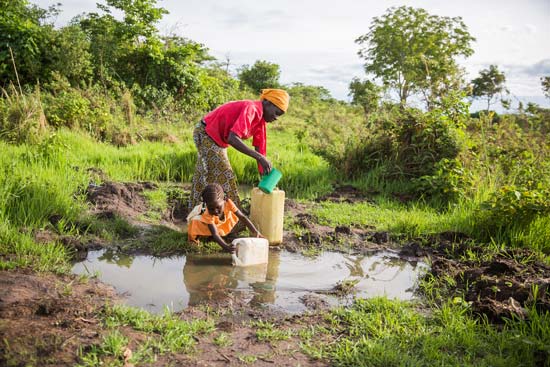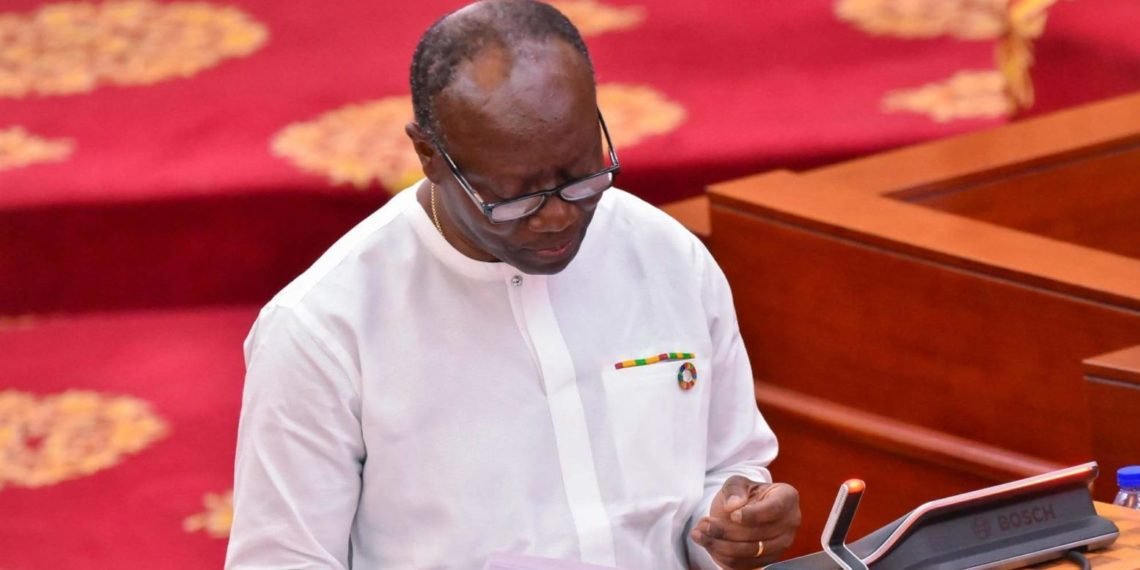The government spent GH¢ 659.5 million last year towards the delivery of programs under Goal 6 of the Sustainable Development Goals (SDGs) which focuses on Clean Water and Sanitation and seeks to ensure the availability and sustainable management of water and sanitation for all.
This represents a significant reduction in the amount allocated for the goal in 2019. According to the Finance Ministry, Ghana spent a total of GH¢1 billion on SDG 6 in 2019. This means government spending on SDG 6 declined by 30 % in 2020 over the amount spent in 2019.
According to the Ministry of Finance (MoF), the Development Partners (DP) were the main source of funding towards the delivery of programs under the SGD 6 last year. The DP provided GH¢ 309 million whilst GH¢ 160 million came from the ABFA. Other sources of funding include GH¢ 7.3 million from the government and GH¢ 10.4 million from the IGF. Also, Statutory Funds amounted to GH¢ 158 million.
Also, the MoF revealed that target 6.2 received the most funding of GH¢ 240 million. This is higher than the GH¢ 153.46 million given in 2019.
Meanwhile, MoF indicated that out of the total budget, GH¢ 436.8 million was allocated to national-level programs. The remaining GH¢ 222.7 million went to the various districts across the country to implement the district-level programs. Besides, Statutory Funds were the main source of funding with an amount of GH¢158 million at the district level.
Regional analyses further revealed that the Ashanti, Eastern, and Northern were the top three regions that received funding under this Goal. The three regions received corresponding amounts of GH¢ 33 million, GH¢ 21.7 million and GH¢ 21.3 respectively.
National Perspective
In Ghana, sanitation has become a major concern, especially in urban areas. As part of the government’s efforts to tackle the situation, President Akufo Addo has pledged to make Accra the cleanest city in Africa. More recently, there is an imposition of the sanitation levy to help enhance sanitation in the country.

According to the MoF, about 88% of the urban population in Ghana has access to basic drinking water. Despite the high access rate, there are always disruptions in the supply of water to some areas. This is a major concern to residents in such areas. On May 9, 2021, Ken Ofori-Atta, Minister of Finance stated, that his outfit will ensure the distribution of water to areas most in need in the coming days.
Despite the challenges, MoF stated that “Ghana celebrates a substantial improvement as this exceeds the country’s Millennium Development Goal (MDGs) target of 78%”. Nevertheless, the MoF admitted that “disparities exist, however, between urban and rural safe drinking water access”.
According to the Ghana Multiple Indicator Cluster Survey, urban dwellers are more likely to have access to safe drinking water than rural dwellers. More specifically, 91% of urban dwellers are more likely to have access compared 69% of the rural folks.
Policy Initiatives
Furthermore, the Community Water and Sanitation Agency (CWSA) initiated policy reforms in the Rural Water and Sanitation Sub-sector in 2017. This is in line with meeting the requirements of the SDG 6 and national commitments for water and sanitation. The reforms aim to change the existing Community Management Model to professionalized management of water supply services.
Similarly, there is also an amendment of the Community Water and Sanitation Agency Act, 1998 (Act 564) to transform the (CWSA) into a utility service organization. The government, therefore, developed the Greater Accra Metropolitan Area (GAMA) Sanitation and Water Project in line with the Act. This aims at increasing access to improved sanitation and improved water supply in the GAMA. The emphasis is on low-income communities and strengthening the management of environmental sanitation in the area. Estimates from the World Bank show that 550,000 people would benefit from this project.
Global Perspective
According to UNICEF & WHO, 1.8 billion people have gained access to basic drinking water services globally since 2000. However, there are huge differences in the availability, accessibility, and quality of these services. Estimates from these organizations show that 1 in 10 people (785 million) still lack basic services, including the 144 million who drink untreated surface water.
READ ALSO: Gov’t spent GH¢ 421.6m to ensure the provision of Decent Work in 2020




















